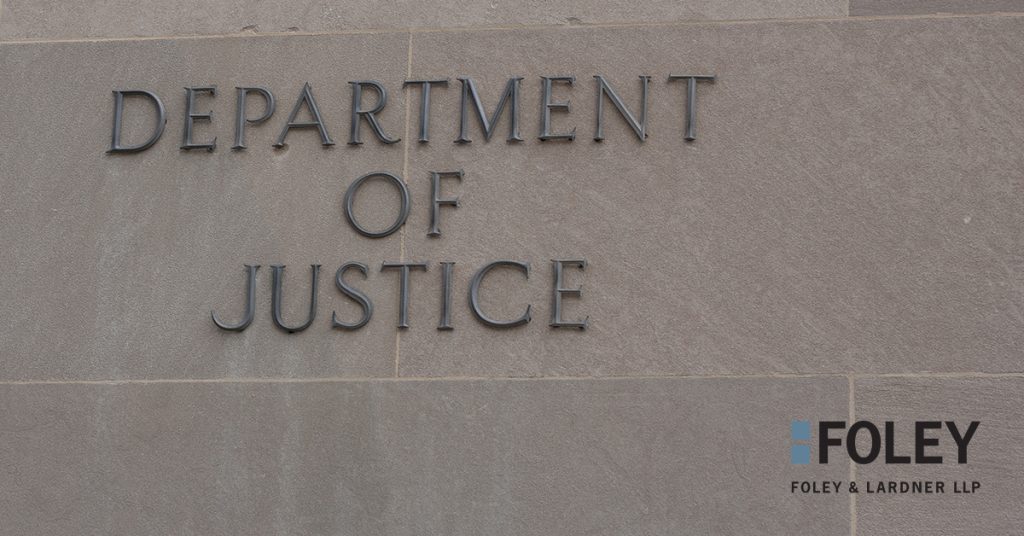Listen to the article
Recent developments in the enforcement of the False Claims Act (FCA) have sent a clear signal to international companies: doing business with the U.S. government brings significant compliance challenges that extend well beyond American borders.
Federal prosecutors have increasingly targeted foreign businesses under the FCA, which imposes liability on entities that defraud governmental programs. This trend highlights a crucial reality for overseas companies – participating in U.S. government contracts, grants, or programs requires strict adherence to American regulatory standards, regardless of where a company is headquartered.
The Department of Justice’s enforcement actions have resulted in several high-profile settlements involving international corporations in recent years. These cases demonstrate that geographic distance provides no shield against FCA liability when a company’s products or services touch U.S. government funds.
“Foreign companies often underestimate their exposure to FCA enforcement,” explained Jonathan Aronie, a government contracts attorney who specializes in FCA matters. “Many assume that because they’re based overseas, U.S. regulations won’t affect them with the same force. That’s a dangerous misconception.”
The FCA’s reach becomes particularly relevant in sectors with significant government spending, including healthcare, defense, infrastructure, and technology. As the U.S. government increases its focus on supply chain security and domestic manufacturing, foreign companies in these industries face heightened scrutiny.
A key aspect of FCA enforcement involves “certification” requirements, where companies must verify compliance with various regulations. These certifications can become the basis for FCA actions if they contain inaccurate information. For international businesses unfamiliar with U.S. regulatory frameworks, this creates substantial risk.
Trade restrictions add another layer of complexity. The Buy American Act, Trade Agreements Act, and other country-of-origin requirements impose specific obligations on government contractors. Misrepresentations about product origins have triggered numerous FCA cases against foreign entities.
Chinese companies have faced particular attention from regulators, reflecting broader tensions in U.S.-China relations. Cases have involved allegations ranging from cybersecurity violations to prohibited component sourcing. Japanese, European, and other Asian companies have also found themselves subject to FCA investigations when their business activities intersect with U.S. government funding.
Healthcare presents another significant risk area. International pharmaceutical manufacturers, medical device companies, and healthcare providers face FCA exposure when their products or services are reimbursed through Medicare, Medicaid, or other federal healthcare programs.
“The healthcare sector is especially vulnerable because of complex pricing requirements, intricate reimbursement systems, and strict quality standards,” noted Sarah Hall, a healthcare compliance expert. “Foreign companies often struggle to navigate these regulations, creating inadvertent compliance gaps.”
Whistleblowers play a crucial role in the FCA enforcement landscape. The law’s qui tam provisions allow individuals to file lawsuits on behalf of the government and receive a portion of any recovery. These financial incentives have turned employees, competitors, and industry insiders into potential whistleblowers, creating an additional monitoring mechanism for regulatory compliance.
For international businesses, developing a comprehensive compliance strategy has become essential. This includes conducting thorough due diligence before entering U.S. markets, implementing robust compliance programs, providing specialized training on U.S. regulatory requirements, and performing regular audits to identify potential issues before they trigger enforcement actions.
Legal experts recommend that foreign companies establish clear documentation practices and maintain careful records of compliance efforts. When issues arise, prompt investigation and, if necessary, voluntary disclosure can sometimes mitigate penalties.
The stakes are high – FCA violations can result in treble damages (three times the government’s losses), substantial civil penalties, and potential debarment from future government contracts. Beyond financial consequences, FCA cases often bring reputational damage that can affect a company’s global operations.
As U.S. regulatory enforcement continues to extend its global reach, international businesses must recognize that entering American markets brings not just commercial opportunities but significant compliance obligations. The False Claims Act stands as a powerful reminder that doing business with the U.S. government requires vigilance, regardless of corporate headquarters location.
Verify This Yourself
Use these professional tools to fact-check and investigate claims independently
Reverse Image Search
Check if this image has been used elsewhere or in different contexts
Ask Our AI About This Claim
Get instant answers with web-powered AI analysis
Related Fact-Checks
See what other fact-checkers have said about similar claims
Want More Verification Tools?
Access our full suite of professional disinformation monitoring and investigation tools



